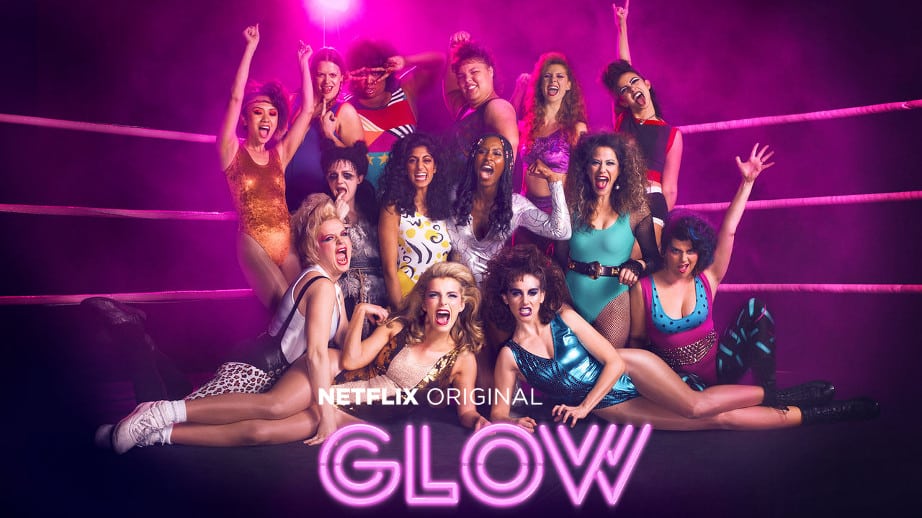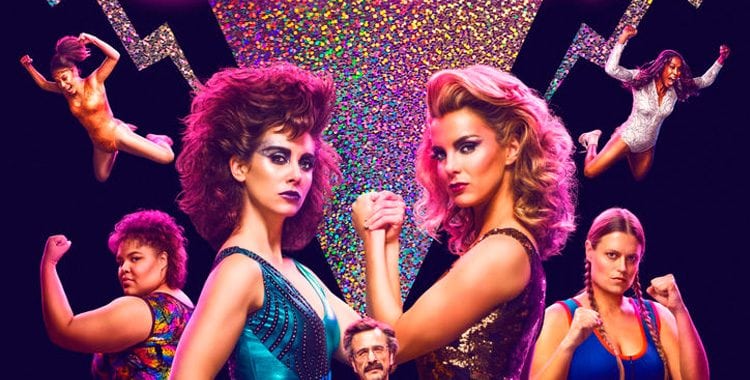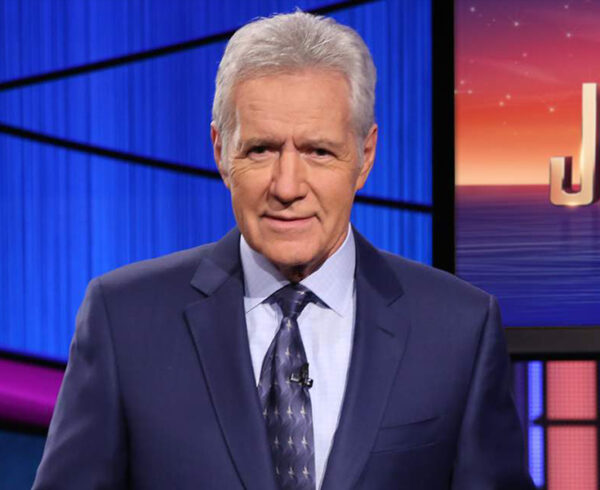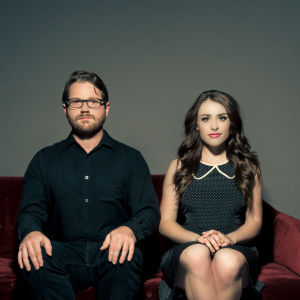Gorgeous Ladies of Wrestling: GLOW
Fueled by razor-sharp writing and pitch-perfect performances in its fictional retelling of how the mid-1980’s “Gorgeous Ladies of Wrestling” cable access program found a dedicated audience against all odds, Netflix’s original series “GLOW” likewise emerged as one of 2017’s surprise smash hits. And with the release of its encore season this past weekend, “GLOW” answers the questions we had about its sustainability as resoundingly as a body slam on a wrestling mat: yes, “GLOW’s” second season has retained every ounce of momentum from its debut season. And yes, it may have even gotten better.
At the very least, the stakes have risen in Season Two, as GLOW’s host network shifts the scheduled program to the 2AM graveyard slot, effectively placing it one poor-ratings night away from the proverbial grave itself. With the show’s almost certain cancellation heightening the interpersonal tensions established in the first season, Season Two zeroes in on wrestlers Ruth (Alison Brie) and Debbie’s (Betty Gilpin) fractured friendship, as well as program director Sam (Marc Maron, in a “character he was born to play” role), his adult life a cautionary tale of drugs and lust, attempting to be a good father to Justine (Britt Baron), and slowly experiencing genuine romantic feelings for Ruth.
Though Brie, Maron and Gilpin are the ones getting the most screen time–and all three capitalize on the opportunity with knockout performances–”GLOW” continues to be one of the more adept balancing acts on television today, finding a myriad of ways to endow its many supporting characters with wholly satisfying storylines.
Sometimes, an entire episode will be devoted to a supporting character; other instances see particular storylines re-invoked for brief spurts and then shelved for multiple episodes; there’s even one episode that introduces a brand new character by showing her watch a full episode of GLOW on TV. But in all cases, series creators Liz Flahive and Carly Mensch remain firmly in control of what to give us, when, and for how long. Like a large orchestra in which each musician gets a solo that commands your attention and yet never hogs the spotlight, “GLOW” weaves seamlessly back and forth between its layered characters in ways that always feel vital and never distract from the bigger picture.
Just as impressive as “GLOW’s” smooth navigation of its multiple storylines is its proclivity for balancing clashing tones and shifting between them on a dime. For example, midway through the season, the laugh-out-loud lunacy of the GLOW girls, all donning ridiculous wrestling costumes, frantically checking their fellow castmate into the hospital, segues into Sam addressing his cast in the waiting room in heartbreaking fashion.
“Aside from the injury, terrific show tonight, girls,” says Sam, showing a genuine enthusiasm for the project that, to this point, we’ve never seen from him. “Do you think we’ll get our time slot back?” asks one of the GLOW girl earnestly. We want so badly for Sam to say “yes,” per every other sports movie we have ever seen. But alas, instead, Sam gazes at her compassionately for a few sobering beats before uttering “I don’t think so.” Because that’s real life. And Flahive and Mensch both know that’s precisely what we need.
Despite its flair for the dramatic, “GLOW” never forgets that it is, ultimately, a comedy, as it nails the quirks and intricacies of 1980’s Los Angeles and squeezes every last drop of comedic juice that it can from its ripe setting. But what makes “GLOW” unique is that its primary mission, even more so than to be funny, is to be an honest, no-punches-held examination not only of the human condition, and also of women’s rights. Indeed, though the wardrobes, music, local TV ads and general campiness of the wrestling matches feel extremely dated, the unfair societal disadvantages with which the GLOW performers wrestle in every episode feel as applicable today as ever.
By fully capturing the unbridled raw energy that earned the actual GLOW six unexpected seasons on TV from 1986-92 and subverting it at every turn with humor, nuance and even poignancy, Netflix’s “GLOW” feels like a show that’s destined for six seasons of its own.













